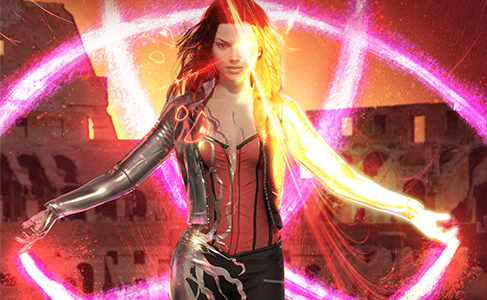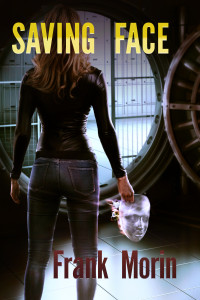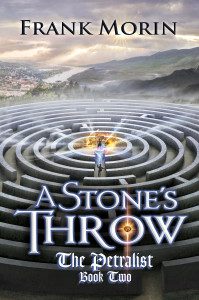A guest post by Martin L. Shoemaker.
“Listen, now. Read this carefully, because I am going to tell you something important. More than that: I am about to tell you one of the secrets of the trade. I mean it. This is the magic trick upon which all good fiction depends: it’s the angled mirror in the box behind which the doves are hidden, the hidden compartment beneath the table. It’s this: There is room for things to mean more than they literally mean. That was it.”
— Neil Gaiman, “Confessions: On Astro City and Kurt Busiek”
What is genre? That’s our topic this month, and you’re getting many answers from many authors, because genre has many aspects. It’s part setting, part conventions and tropes, and more. At a meta level, it’s reader expectations – and to a degree, non-reader expectations: many people have said of my story Today I Am Paul, “Oh, that doesn’t sound like science fiction!” Excuse me? An android caring for an Alzheimer’s patient isn’t science fiction? But every person who said that also said first, “Oh, I don’t read science fiction.” These aren’t SF readers, because they “know” what the genre’s about: spaceships and phasers and light sabers and such.
And that’s, unfortunately, another aspect of genre: it’s a wall people use to divide the world into “books I might like” and “those other books”. Without even understanding the range of a given genre, they decide it’s not for them.
One of the complaints non-genre readers often have is that genre is too clichéd, that the worlds of genre are ridiculous. They like to mock the tropes of fantasy and science fiction, in particular, finding and exaggerating the worst tropes. And let’s be honest: there are plenty of bad examples out there (even if we can’t all agree which ones they are). So they come to associate these bad examples with the very concept of fantastic worlds.
And there I think they’ve missed the mark entirely. By focusing on the worst, they miss the best, and the incredible literary power of worldbuilding, of genre.
What power is that? Let’s start with metaphor.
The Moon hung in the sky, its icy eye glaring down at us and demanding to know: When would we return?
The Moon doesn’t hang. It doesn’t have an eye, nor is it icy. It makes no demands. But as Gaiman tells us: There is room for things to mean more than they literally mean. By momentarily writing statements that are literally false, I conveyed a feeling and an effect that a more literal statement would lack:
The Moon in its orbit remained unoccupied since our last visit.
The same facts are conveyed, but the facts are – like the Moon – dead. In the metaphor, however, the Moon seems alive. Mysterious. Beckoning.
From metaphor, we move to the extended metaphor, or conceit. As the name implies, it’s a metaphor that builds over a longer passage, allowing you to build and explore similarities and contrasts.
He longed to return to the distant fortresses of the Moon: the palace walls of craters, with their mountainous turrets in their centers and their chambers and dungeons mined below. There a man might establish his quiet, airless kingdom, and no barbarians could storm the castle. Not without a space program of their own.
By describing the Lunar craters and central peaks in terms of castles and fortresses, I conveyed (I hope) the POV character’s militarized and somewhat romanticized view of life on the Moon. He’s not an explorer, he’s looking to build a kingdom.
Metaphor and conceit are powerful literary techniques, but I think genre gives us one even more powerful. In a good genre story, the entire world can be what I call an immersive metaphor. The world you build conveys the feelings, moods, and themes you wish the reader to experience.
For one recent example, look to Nnedi Okorafor’s novella “Binti” (excerpted here), winner of the Nebula. It was Okorafor’s first space story; and I heard (secondhand – I’m still trying to get an exact quote) that she said that prior to this story, space intimidated her. It was so isolated.
And when I heard that, I wanted to shout, “YES!”
Of course space is isolated. That’s one reason to tell a story in space: to put a character or characters in isolation and then explore the effects on them, in a story where you can pick and choose the environment to highlight your theme.
In The Lord of the Rings, forests are metaphors for both deep age (old forests with hidden secrets) and yet also spring and youth (the timeless forests of Lothlorien, where the past still lives). In Le Guin’s The Word for World is Forest, the forest is a metaphor for unspoiled nature before man mars it for his purposes. In both, though, forests are essential elements of the worldbuilding, both as locations and also as challenges. There is room for them to be forests and to mean more.
In a typical cyberpunk story, the crowded megacity is a metaphor for the massive power structures that dwarf the individual, mocking their powerlessness; and the small but stubborn ways the protagonists find to pursue their own goals represent rebellion against that power. Cyberspace represents a frontier right inside the existing power structure, a place where knowledge literally is power. Yet at the same time, these elements drive plot and shape character. They are both world and metaphor, a metaphor that is all around the characters, wherever they look. A metaphor so pervasive, so immersive, that the characters don’t see it. But the readers can, if we as writers craft it into our worlds.
In my own work, I have two recurring metaphors that are also critical elements of my worlds. The first is simple: a character leaping from an airlock. The airlock is a boundary, and a metaphor for decision: Behind you is safety and the known; before you is danger and the unknown; and at some moment, you have to decide to cross that boundary. How a character crosses tells you something about their approach to challenges. Some people might do so timidly, but my characters almost always leap. They trained and fought to explore the unknown, and they’re not going to hold back now.
My other recurring metaphor is microgravity (sometimes called zero gravity, but microgravity is the more accurate term). In microgravity, you can’t walk or stand, you can’t sit, you can’t even lay down. Unless you strap yourself in place, you float; and the slightest force, even air currents, can set you onto a different course. Microgravity is a metaphor for uncertainty and change. How a character manages it can represent either watchfulness and skill or careless naiveté. Nothing is fixed, and you can’t just stand still. If you don’t consciously set your course, forces around you will set it for you. Yet at the same time that it serves as this metaphor, it also presents a physical challenge for the characters, one they cannot ignore.
And this worldbuilding can be a challenge for the writer as well. If you strive to get it right, you become keenly aware of how many ways there are to get it wrong. I write a lot of microgravity stories, and I have to go over every scene in my head. Have I implied that the character is standing or walking? When they swung their arm or shook their head, did I note how their whole body moved in response? If the engines fired, did I portray which direction suddenly became down?
But I like to think that it’s worth the effort. I want the reader to feel the weightlessness, to sense that nothing is fixed and the characters must control their own course. I want the world to be immersive – and the metaphor as well. I want the reader to live briefly in my world – and I want that to mean more than it literally means.
GUEST BIO: Martin L. Shoemaker is a programmer who writes on the side… or maybe it’s the other way around. Programming pays the bills, but a second place story in the Jim Baen Memorial Writing Contest earned him lunch with Buzz Aldrin. Programming never did that! His Clarkesworld short story “Today I Am Paul” was nominated for a 2015 Nebula and will appear in four year’s best anthologies and eight international translations. His work has appeared in Analog, Galaxy’s Edge, Digital Science Fiction, Forever Magazine, and Writers of the Future Volume 31.







